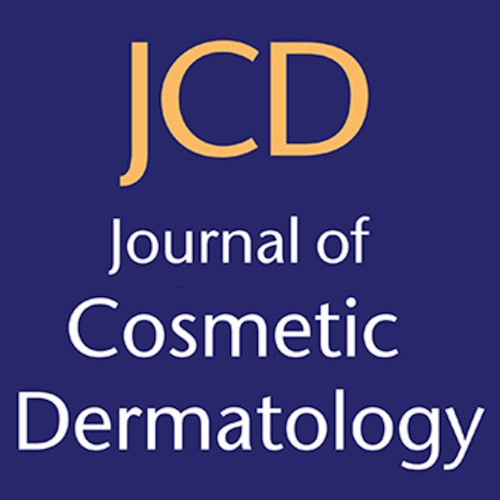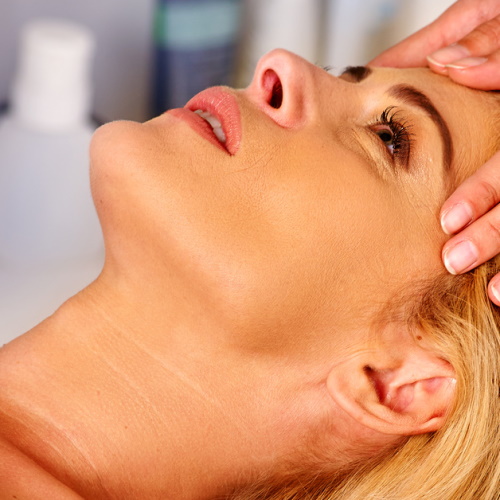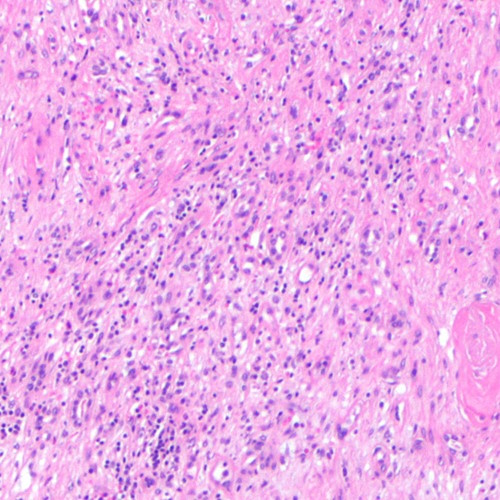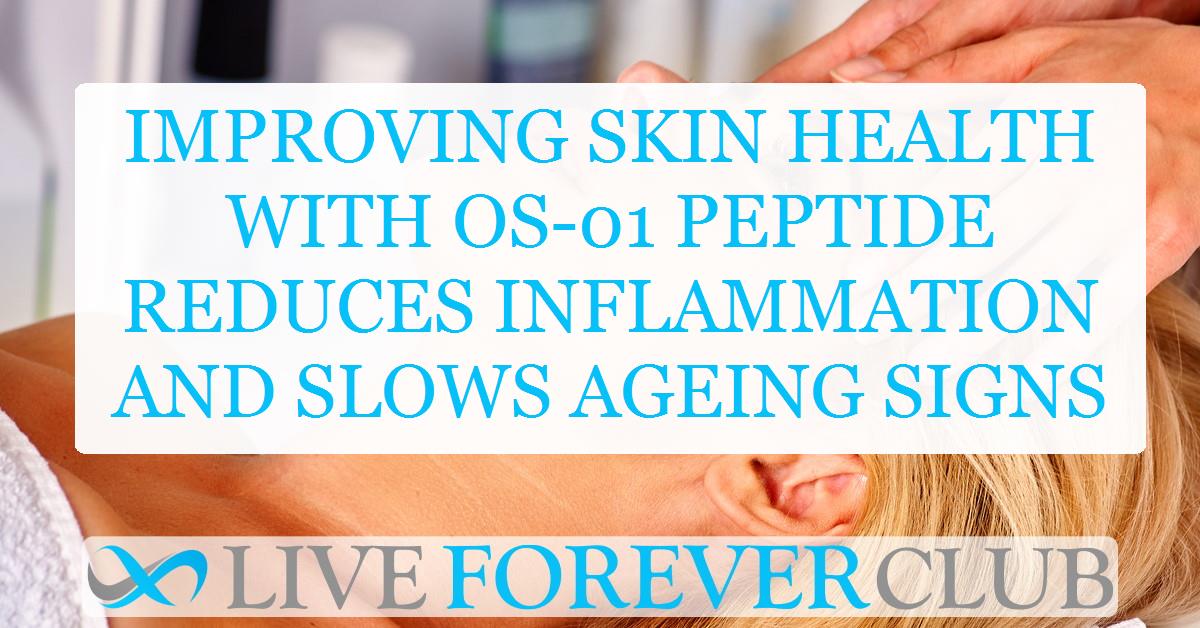Our skin is more than just a protective outer layer. It is a dynamic organ that reflects and influences the body's overall health. As we age, the skin undergoes changes that compromise its barrier function, leading to increased vulnerability to external threats and internal systemic inflammation. Recent research suggests that these changes are not merely cosmetic concerns but are deeply connected to aging across the entire body.
A new clinical study explored how a topical formulation containing OS-01, a senotherapeutic peptide, can improve skin health and possibly affect systemic ageing. The findings present an exciting step toward understanding the intricate link between skin integrity and longevity.
Understanding Skin Ageing and Systemic Effects
Skin ageing results from a combination of intrinsic biological processes and extrinsic environmental exposures. These changes manifest as reduced barrier integrity, immune dysfunction, and increased levels of cellular senescence. Ageing skin loses essential immune cells while inflammatory cells become more dominant, especially in sun-exposed areas.
As the skin barrier weakens, it sets off a cascade of inflammatory responses. This inflammation can extend beyond the skin, fueling systemic chronic diseases such as cancer, cardiovascular disease, and autoimmune conditions. The accumulation of senescent cells and the resulting secretions, collectively known as the senescence-associated secretory phenotype (SASP), drive much of this process.
Innovating with OS-01: The Senotherapeutic Approach
Recognizing the skin’s central role in systemic health, researchers developed OS-01, also known as Peptide 14. Preclinical and early clinical studies had shown that OS-01 could strengthen the skin barrier and reduce markers of biological ageing.
In the current study, a 12-week, randomized, double-blind trial was designed to investigate whether daily topical application of OS-01 could yield meaningful improvements not only in skin health but also in systemic inflammation markers. Sixty women between the ages of 60 and 90 participated, applying either the OS-01 formula or a control moisturizer twice daily.
Designing a Rigorous Clinical Study
To ensure accuracy and eliminate bias, researchers employed a rigorous double-blind methodology. Participants were divided into two groups, each receiving unidentified bottles containing either the OS-01 peptide formulation or a control moisturizer known for strengthening the skin barrier.
Skin assessments, including transepidermal water loss (TEWL), hydration levels, and pH measurements, were performed at baseline and after 12 weeks. Blood samples were collected to analyze systemic cytokine levels and to determine biological age using GlycanAge analysis, a cutting-edge biomarker of immune system ageing.
Enhancing Skin Barrier Function
Instrumental analysis provided objective evidence of skin improvement. Participants using the OS-01 formula experienced a 41.49% reduction in TEWL on the forearm and a 34.73% reduction on the upper arm. The control group showed improvement mainly on the forearm, with a much less significant effect on the upper arm.
Hydration levels also markedly improved in the OS-01 group, showing over 38% enhancement in both measured areas. These outcomes highlight the superior ability of OS-01 to restore and maintain healthy skin barrier function compared to the control moisturizer.
Participants' Perception Validates Scientific Findings
While scientific instruments captured measurable changes, participant feedback provided crucial subjective confirmation. After 12 weeks, more than 92% of OS-01 users reported improvements in skin hydration, compared to about 66% in the control group.
Users also noted better skin texture, elasticity, and overall appearance. Such strong alignment between perceived and measured improvements suggests that OS-01 does not just change the skin at a microscopic level but creates visible, tangible benefits for users.
Impact of OS-01 on Systemic Inflammation
A key question in this study was whether improving skin health could influence systemic inflammation. Blood analysis revealed that participants in the OS-01 group showed a significant decline in circulating inflammatory cytokines, particularly IL-8 and IL-10.
Meanwhile, the control group experienced an unexpected rise in proinflammatory markers like TNFα and IFN-γ. These results suggest that targeted skin care may help modulate systemic immune responses and counteract chronic low-grade inflammation associated with ageing.
GlycanAge Results: Slowing Biological Ageing
Biological ageing, assessed through GlycanAge, offered another fascinating insight. While participants using the control moisturizer aged faster than expected, those treated with OS-01 showed a slight reduction in biological age.
This trend indicates that skin treatments targeting cellular senescence may have wider anti-ageing effects throughout the body. Maintaining a healthy skin barrier could be crucial for preserving immune function and slowing the biological ageing process.
Exploring the Broader Implications of Skin-Centered Interventions
These findings support the growing view that skin health extends beyond aesthetics. Skin dysfunction can contribute to systemic inflammation, accelerating the onset of age-related diseases. Conversely, improving skin function could help protect the body from these outcomes.
Targeting senescent cells in the skin, as OS-01 does, represents a promising strategy to influence systemic health. By reducing the burden of inflammatory mediators at the skin level, it may be possible to delay the progression of chronic diseases.
Limitations and Considerations for Future Research
While this study shows promising results, some limitations must be acknowledged. Lifestyle factors such as diet, exercise, and sleep were not fully controlled, although participants reported no major lifestyle changes during the study period.
Further research should aim for larger, more diverse populations and longer durations to validate these findings. Standardizing lifestyle factors and expanding biomarker analysis could provide even deeper insights into how skin-targeted therapies affect systemic health.
A New Perspective on Ageing and Longevity
The OS-01 clinical study offers a compelling new perspective on ageing. It demonstrates that improving skin health is not merely a cosmetic endeavor but could play a vital role in promoting overall body health and longevity.
By addressing the underlying mechanisms of cellular senescence and inflammation through topical interventions, we open the door to new strategies for healthy ageing. The skin, once viewed largely as a passive barrier, now emerges as a critical player in the complex symphony of human ageing.
As research continues to unfold, we may soon see skin-centered therapies become an essential part of personalized health and longevity programs. The future of ageing gracefully could very well start with taking better care of our skin.
The study is published in the Journal of Cosmetic Dermatology. OS-01 is sold by OneSkin, a company focused on longevity through skin health.







